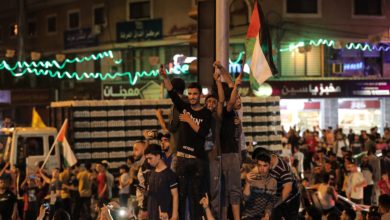After nearly a year of intense political struggle in Yemen, the country’s president has officially signed a transfer-of-power deal. However, due to overwhelming discontent with the terms of the agreement, protests have continued to rage all over the country.
Yemeni President Ali Abdullah Saleh officially signed on to a deal to transfer power to his vice president, Abed Rabbo Mansour Hadi, on Nov. 23 in Riyadh, Saudi Arabia. The agreement was brokered by the U.S./U.N.-backed Gulf Cooperation Council, a regional coalition of Arab states largely beholden to U.S. imperialism.
In accordance with the terms of the agreement, there will be a two-year transition period. A transitional government, known as the national unity government, has been set up, and presidential elections are scheduled to take place at the end of February.
The transitional government is made up of a 35-member cabinet equally divided between Saleh’s governing General Congress Party and the Joint Meetings Party, which is composed of several opposition political parties. Mohammed Basindwa, a former member of Saleh’s party, has been selected to lead the cabinet.
But the JMP does not include large sectors of the grassroots opposition movement. Many in the opposition who rejected the GCC deal outright are not represented, including an overwhelming number of Yemeni youths.
Despite allegedly signing over power, Saleh will retain the title of president until the elections in February, and he has made repeated public statements and decrees regarding the political direction of the country. His son and three nephews also continue to hold on to powerful positions in Yemen’s security service.
Saleh remains immune from prosecution
Possibly the most reviled part of the GCC deal is that Saleh and his family remain immune from prosecution, despite the fact that, all over Yemen, the prospect of Saleh’s criminal prosecution would have fueled great hopes for justice.
Saleh also has a history of repeatedly reneging on his many promises to relinquish power. And recent increases in government-led attacks have many in the opposition speculating that further violence could be used as a pretext for Saleh to justify remaining in power, as has happened many times before.
“This is politics,” said Ali Mohammed al-Hadda, an opposition activist in Change Square. “The revolution’s goals have not been met.” (The New York Times, Dec. 2)
Protests have continued to intensify all over the country in spite of the declared intent of the GCC deal to scale back the ongoing turmoil. And the government has once again responded with unprovoked attacks against unarmed civilians.
In the central city of Taiz, there have been repeated reports of government forces shooting at unarmed protesters. According to a medical source at a field hospital in the city, since the beginning of December alone, shelling by government forces targeted civilian residential neighborhoods, killing 30 people and gravely wounding 90 more. Government forces have prevented Red Crescent medical teams from accessing areas of the city to provide assistance for those injured. (Yemen Times, Dec. 4)
“Officially,” said a Yemeni official who asked to remain anonymous, “the government says it is clashes with tribes, but I’m afraid it is the troops doing the shooting.” (BBC, Dec. 7)
Here in the United States, we have seen that a superficial change of political office-holder is not sufficient to meet the needs of the people. The same holds true for Yemen. As the country’s political situation continues to unfold, it is critical that we stand in solidarity with the Yemeni people in their struggle for self-determination.





